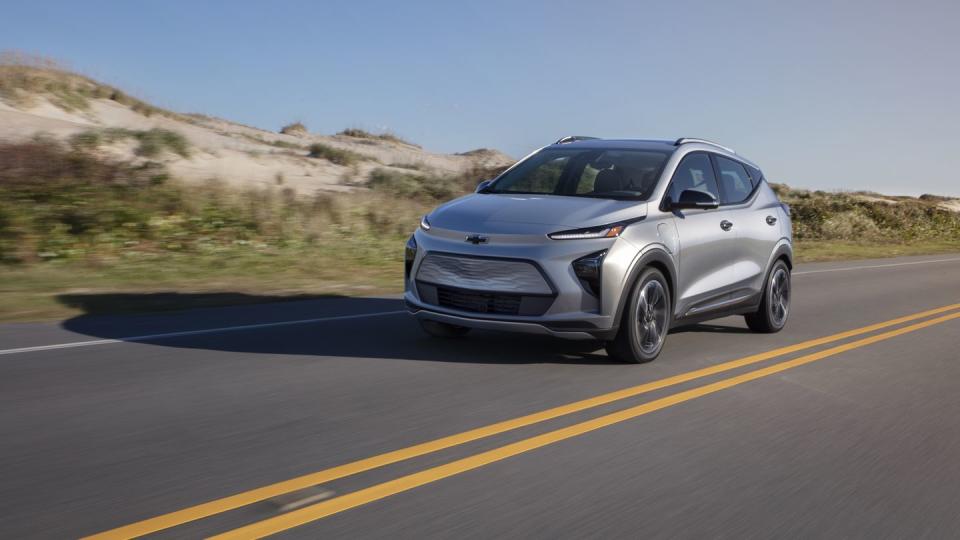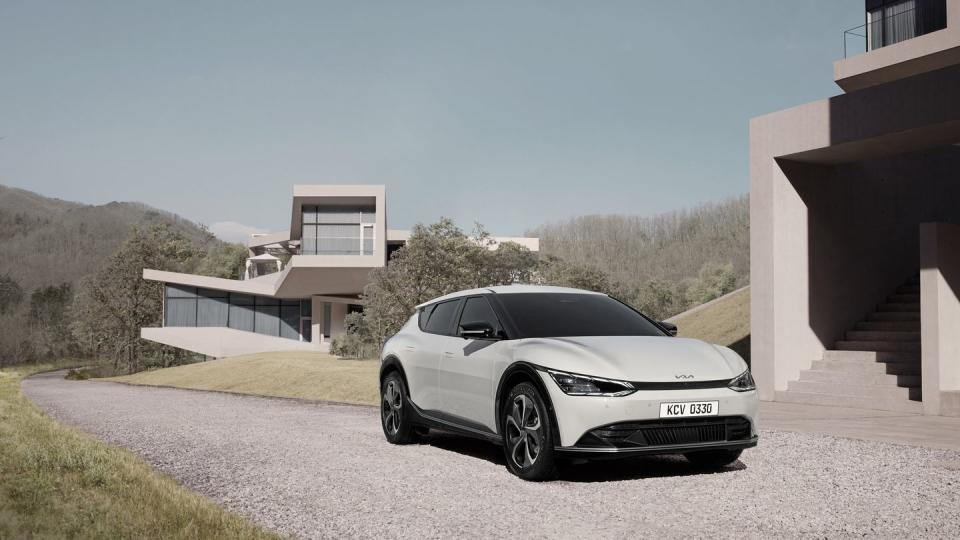Hybrids Pull Ahead as Battery-Electric Vehicle Sales Stall

EV demand is genuinely shrinking, but the story is not as simple as waning consumer interest or production challenges.
According to iSeeCars analysis, used EVs spend longer on dealership lots despite rapidly dropping prices, indicating renewed consumer skepticism.
On the new side of things, EVs remain particularly pricey, meaning average buyers struggle to justify the sticker price and rising interest rates.
There has been a four horsemen of the electric vehicle apocalypse dynamic coming out of automaker boardrooms and the supporting industries for some time now. EV demand has come and gone, at least for now, some executives say. These forward-looking statements tie directly to sales, but the effects on industry workers are present and clear, too.
Earlier this fall, we reported on General Motors' claim that EV sales were trending downward and found that such a claim depended on where you looked, as is the case with many statistical statements. But the analysts at iSeeCars crunched the actual numbers on 2.3 million new and one- to five-year-old used car sales to prove a point.

In doing so, iSeeCars found that there is, in fact, a downward spiral of EV sales, both new and used. Used EV prices have fallen 33.7% year-over-year, with an average unit price of $34,994, while the used car market as a whole only dropped 5.1% year-over-year. Notably, the average used EV price in 2022 was $52,821. Similarly, used hybrid prices are down 9.6%.
Even with cheaper price tags, used EVs remain stagnant on dealer lots, averaging 52.4 days before being sold. Compared to data from 2022, that's an additional 14.9 days on the market, indicating rapidly slowing demand or increased EV skepticism from used buyers. Examining the full market of used cars reveals an average of 49.2 days on lots.
"This combination of lower prices and slower sales suggests EVs have hit a market demand threshold that will be difficult to break through. Everything from economic concerns to growing competition among electric vehicles is contributing to their downward trend," said Karl Brauer, iSeeCars executive analyst.
EVs make up three spots on the top 10 slowest-selling used cars list. Kia's EV6 typically spends 95.9 days on the market while Ford's F-150 Lightning accrues 78.4 days worth of dealership dust. The Polestar 2 rounds out the list with an average of 73.4 days stuck on dealer lots. The industry average for all used cars is 49.32 days.
Used EVs also lead the way on the biggest price drops, as the Nissan Leaf and Tesla Model 3 record year-over-year price reductions as high as 30%. Save for the Model Y, all Tesla models rode a pricing rollercoaster this year, as the company engaged in a pricing war of sorts with Ford.
Hybrids are the only electrified models to buck this trend, as gas-electric versions of the BMW X5, Toyota Highlander, and Hyundai Elantra make up number one, two, and six on the list of fast-selling used cars.

Additionally, a select few used BEVs continue to sell well and quickly—namely Teslas, the Chevrolet Bolt, and Rivian R1T.
"It took years for the car-buying public to understand and appreciate the benefits of hybrid technology," said Brauer. "But enough people have figured it out that hybrids now sell faster than the average new car and much faster than new EVs."
The negative sales trends largely carry over to the new car sales side, with new EVs spending the most time on dealership lots by a margin of 13 days. New hybrids, on the other hand, are the quickest to sell, spending an average of 37.2 days on the lot. It only took an average of 20.5 days for an EV to sell in 2022.
Trying to sell a new EV in a timely manner is even more difficult than selling a used one, believe it or not. Models like the Mercedes-Benz EQS and Mitsubishi Outlander PHEV can take as long as 116 days to leave the dealership. Meanwhile, the ever-popular Ford Maverick hybrid pickup sells in as little as 14.3 days on average, and even that seems high.
Certain EV nameplates continue to perform well compared to other EVs and compared to the new market as a whole. Ford's Mustang Mach-E and the Chevrolet Bolt EUV actually outperform the new market, while models like the Genesis Electrified GV70 and BMW iX compete admirably.

Ford and GM have gone to great lengths in pricing their EV crossovers competitively. Similarly, luxury customers may not be feeling the same tightening effects, as indicated by strong sales for electric Genesis, Audi, and BMW products.
Pricing obviously plays a big role in what sells and what doesn't, but the divergence in EV pricing remains staggering. While the average price for a new car in 2023 is $46,077, the average price for a new EV is $63,878. Hybrids typically sell for $47,505 in 2023.
If you are looking for an EV deal, however, there is a list to choose from. Kia's EV6, Hyundai's Ioniq 6, and the Volkswagen ID.4 all sell under MSRP regularly as of late, though keep in mind these prices remain in the $50,000 range.
These deals are likely a result of overstocking on the dealership side, meaning that below-average pricing won't last forever.
If you did buy an EV, where would you charge it? At home or at a public charger? Could you charge at work? Please share your thoughts below.

 Yahoo Autos
Yahoo Autos 